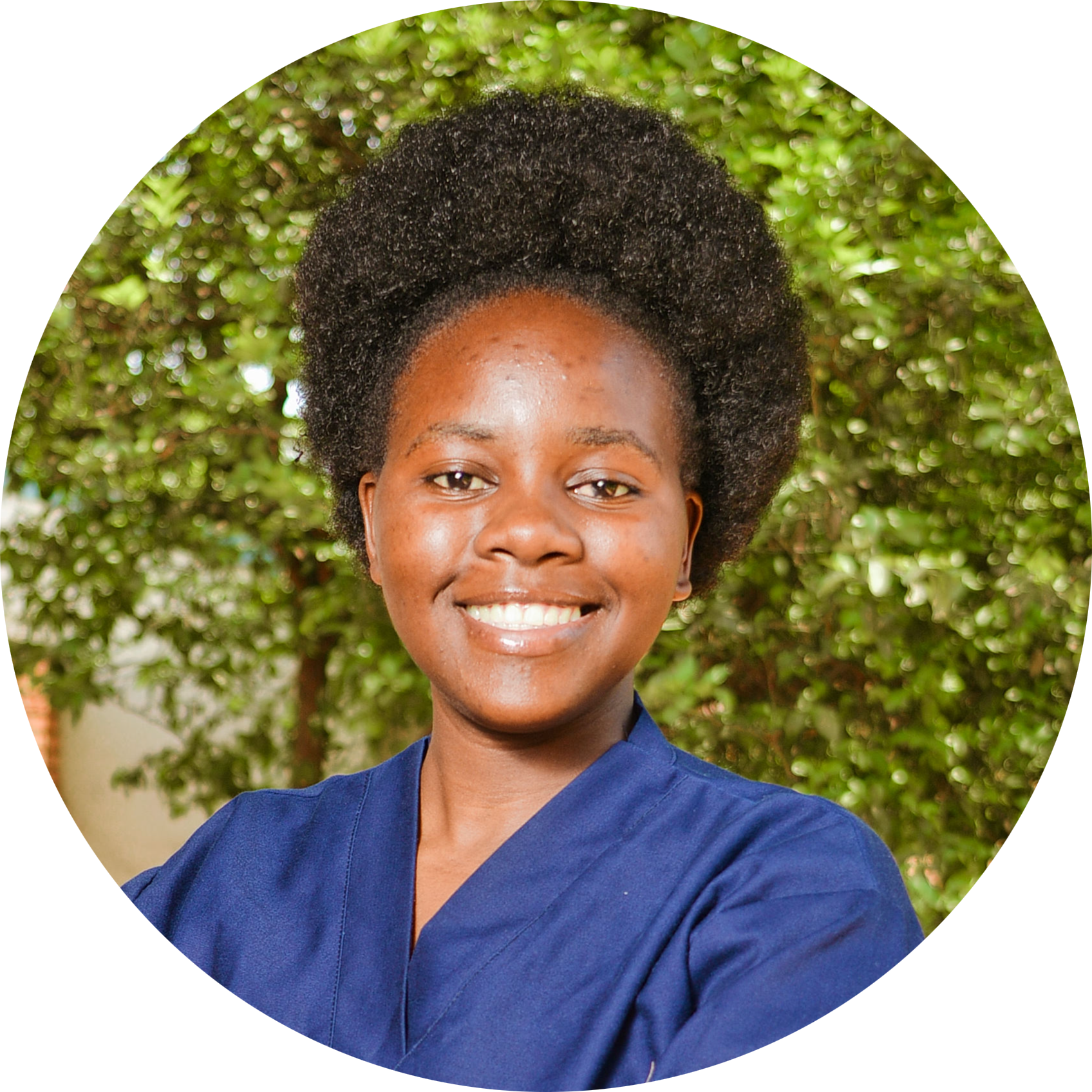ABOUT THE MILLENNIUM FELLOWSHIP - CLASS OF 2024
United Nations Academic Impact and MCN are proud to partner on the Millennium Fellowship. This year, 52,000+ young leaders applied to join the Class of 2024 on 6,000+ campuses across 170 nations. 280+ campuses worldwide (just 5%) were selected to host the 4,000+ Millennium Fellows.

UNITED NATIONS ACADEMIC IMPACT AND MCN PROUDLY PRESENT LWEENDO M SIAMWENYA, A MILLENNIUM FELLOW FOR THE CLASS OF 2024.
University of Zambia | Lusaka, Zambia | Advancing SDG 3, SDG 4 & UNAI 3

" I'm thrilled to be a Millennium Fellow because I believe that every individual deserves a chance to thrive. I'm passionate about promoting social justice and mental health awareness, as I've witnessed firsthand the transformative power of empathy and support. Through my work, I aim to dismantle barriers and create a more inclusive world where everyone can live with dignity and purpose. By amplifying marginalized voices and championing mental wellness, I hope to inspire a ripple effect of kindness and compassion that resonates globally." "
Millennium Fellowship Project: Substance use Kabwata Youth Friendly
Substance use among the youth is a growing concern in communities in Zambia. Kabwata clinic in Lusaka holds Youth Friendly Sessions every Friday where different topics addressing adolescent problems are addressed. This project aimed to sensitize the youths at Kabwata Youth Friendly Space on substance abuse. Objective: To sensitize youths aged 15-18, who reside in Kabwata, on substance abuse. Progress and achievements: We were welcomed by a group of inquisitive and active youths, and successfully delivered our presentation on substance use. Challenges and solutions: An invited guest specialized in mental health did not make it as he had other commitments. We instead had a fellow member who is trained in peer education, mental health, and psychosocial counselling address them. Conclusion: Substance use is a growing concern which has also been noted by the youths at the friendly space. It is key for communities to have such talks as these to increase advocacy and train more peer educators. INRODUCTION Substance abuse is a well-known concern, particularly, amongst the youths in Kabwata. This propelled our group to embark on a project on substance use to sensitize the youths found at Kabwata Youth Friendly Space. On Friday 25th October, 2024, our team of eight members joined a group of twenty youths gathered at Kabwata clinic for their afternoon talk. A presentation on substance use which included, understanding substance use and addiction, the effects of substance use on the brain, the science of prevention, the reasons for abusing drugs and impacts of drug abuse was shared. In between the presentation refreshments were shared and a game of charades was played to make the people feel free and interact with each other. The talk ended with a question-and-answer session, and words of advice from a fellow team member who is a peer educator, mental health and psychosocial counsellor. OBJECTIVE • To sensitize youths aged 15-18, who reside in Kabwata, on substance abuse. PROGRESS AND ACHIEVEMENTS The program began at 14:30 hours and ended at 16:00 hours. We were welcomed by the staff and facilitator at the centre, and he youths at the centre were very inquisitive and actively contributed to the talk. By the end of the afternoon, we had successfully completed our project on substance use sensitization to the youths at Kabwata Youth friendly. CHALLENGES AND SOLUTIONS We planned to have an invited guest specialized in mental health to address the youths, but he did not make it as he had other commitments on that day. We instead had a fellow member who is trained in peer education, mental health, and psychosocial counselling, to address them. CONCLUSION Substance use is a growing concern which has also been noted by the youths at the friendly space. It is key for communities to have such talks as these to increase advocacy and train more peer educators. RECOMMENDATIONS More sensitization should be done on rehabilitation services as most of the youth have little or no faith in the effectiveness of it. Peer education programmes should also be introduced and headed by the clinic, to certify more youths as advocates of mental health.
About the Millennium Fellow
Lweendo Siamwenya, a third-year medical student at the University of Zambia, is a remarkable young woman. Born in Kalomo, Zambia, and residing in Lusaka, she has always been empathetic and prioritized others' needs. Through her leadership experiences, she has interacted with many people, understanding the need for help globally. Lweendo aims to raise awareness about mental health and social justice. She aspires to become a prominent Millennium Fellow, upholding sustainable development goals to benefit the world. Her selflessness and dedication make her an outstanding individual.










